Like Your Fantasy Dark? Try These 5 Books
Not all fantasy is filled with alternative worlds where the good fight evil alongside elves, goblins, and other mythical warriors. Some fantasy books are darker. These books are still magical, but no one can mistake them for the classic good-vs.-evil path. Those who love fantasy might want to pick book with a bleaker outlook on magic. These five recommendations come from the latest issue of Foreword Reviews.
Above
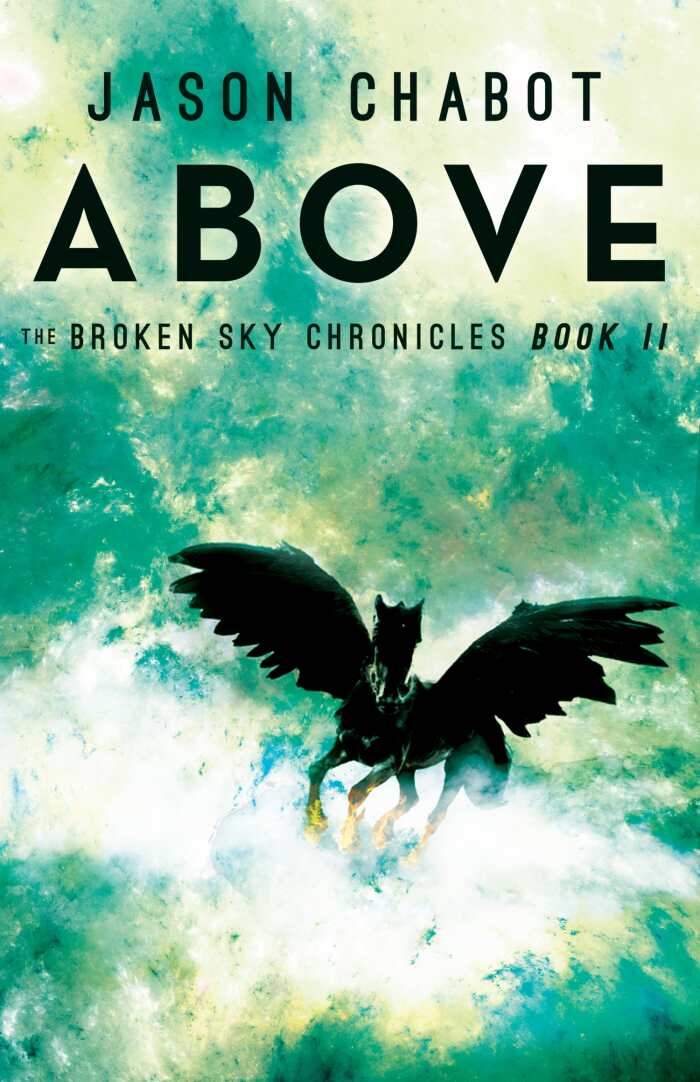
Jason Chabot
Turner Publishing
Softcover $19.95 (384pp)
978-1-68162-604-8
Buy: Amazon
This fantasy contains enough twists, turns, and fantastical elements to keep audiences intrigued.
In a land where islands float in the sky and horses grow wings, Elia is adrift, caught in the middle of a deception that spans generations and worlds. Jason Chabot continues the fantasy and suspense of The Broken Sky Chronicles in book two, Above.
Stuck with marauders in the primitive lands of Below, Elia is dependent on Roahm, the chieftain’s son, for survival, but she continues to yearn for life in the glamorous and corrupt islands of Above. When Hokk, a renegade ally, stages a daring rescue, Elia jumps at the chance to return. A desperate landing on the Isle of Drifting Dunes and a case of mistaken identity find Hokk face-to-face with the twin Emperors, one step closer to solving the mysteries surrounding Elia and the royals.
The story opens with an eerie fog and a deadly arrow, immediately setting the tone and making Elia’s dangerous position evident. Those new to the series will be playing a bit of catch up, though, piecing together the events that landed her there in the first place.
Alternating points of view between Elia, Hokk, and Tashiera, a spoiled but adventurous baron’s daughter, give the narrative three distinct voices that become more entwined as the story progresses. Elia’s anxious urgency and Hokk’s cruel practicality are offset by Tash’s frivolity and penchant for romanticizing events, giving her an endearing likability despite her snobbishness, particularly when she proclaims Hokk a visitor from the moon, unknowingly giving the two of them access to the palace.
The lands of Above and Below are a striking mix of old and new, combining enough elements of a past Earth as we know it to lend it credibility, and cloak-and-dagger escapades in the Mirrored Palace, which bears an uncanny resemblance to a twentieth-century skyscraper, only add to the allure, giving a creatively unique twist to the dystopian- or speculative-fiction aspects.
Tensions build as Elia, Hokk, and Tash each attempt to navigate the socially stratified word of Above, a fast-paced suspense drama with enough twists, turns, and fantastical elements to keep audiences of any age intrigued and coming back for more.
PALLAS GATES MCCORQUODALE (October 10, 2016)
Totem
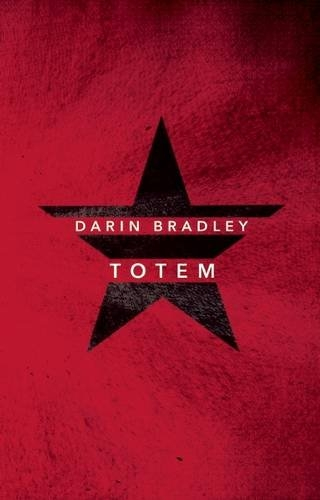
Darin Bradley
Underland Press
Softcover $16.00 (232pp)
978-1-63023-015-9
Buy: Amazon
Totem is a solid work of science fiction and a creative take on the dystopian novel.
In Totem, Darin Bradley builds a future in which a city’s residents deal with the danger of ever-present radiation and the knowledge that their every action could be broadcast to the many people living outside their walls. Bradley delivers creative world building, letting his various characters and perspectives flesh out a lived-in dystopia.
The story is told in chapters with alternating points of view, through characters who don’t necessarily know one another but whose stories sometimes intersect in key ways. One is a journalist for the network whose cameras capture life in the city of Aer. Another is a young man focused on secret rendezvous with his girlfriend, while another is a priest, and another is the daughter of a famous dissident. The narrative is really one of different characters each learning more about Aer’s situation, and is told largely through scenes of daily life in this dystopian future.
Bradley trusts the audience not to need everything spelled out, never revealing exactly how Aer became a radiated artifact or why its religion came to revolve around a kind of stone. Instead, he focuses on what existence in Aer is like—“abatement” clothing and cosmetics people use to limit radiation damage, rotation of living situations to spread out the risk, and the constant streams of video captured by the omnipresent cameras. Technology in Aer mirrors the modern world in some ways, with handheld phones and tablets, while the city’s existence relies on food and supplies from international aid organizations. Aer in some ways is almost a human zoo, a reminder to those outside its perimeter of what life used to be like.
There’s some light social commentary—how people live their lives on camera—but most of the characters that affect change are not necessarily seeking to do so. By placing everyday concerns, like love and family commitments, at the center of these characters’ stories, the larger story of Aer comes together gradually. This diversity of characters works well, allowing Totem to serve as a solid work of science fiction and a creative take on the dystopian novel.
JEFF FLEISCHER (October 10, 2016)
Froelich’s Ladder
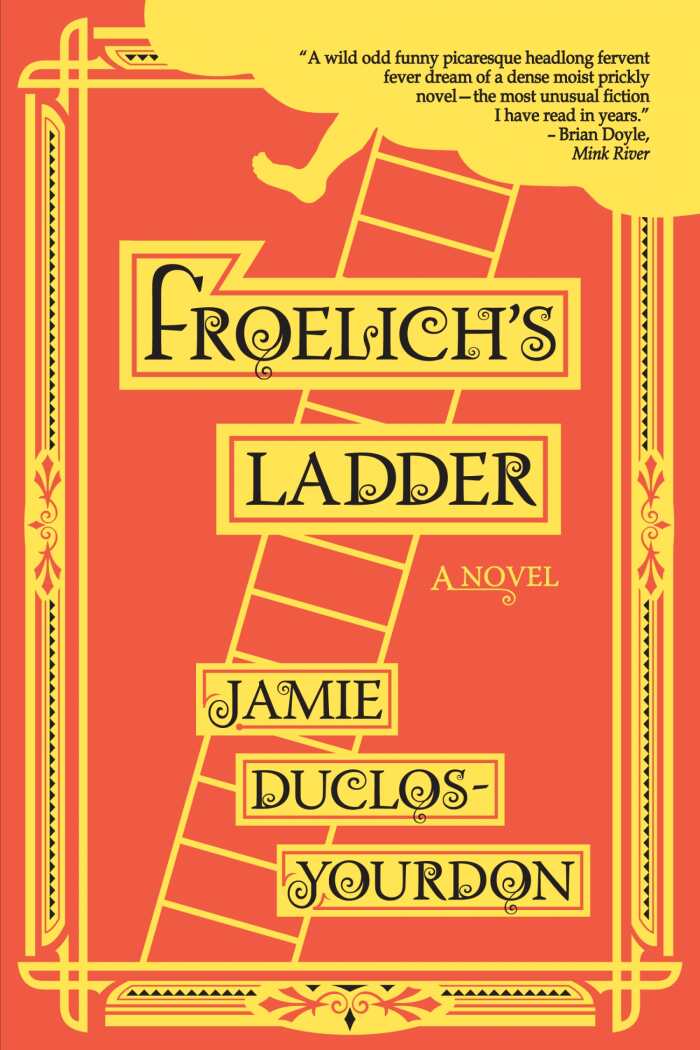
Jamie Duclos-Yourdon
Forest Avenue Press
Softcover $15.95 (248pp)
978-1-942436-19-5
Buy: Local Bookstore (Bookshop), Amazon
Froelich’s Ladder delights with its wit and imagination.
Bristling with the bizarre, Jamie Duclos-Yourdon’s Froelich’s Ladder is a fantastical commentary on humanity’s interconnectedness.
Wrapped in the trappings of American tall tales and fairy tales, the promise of the American frontier beckons German immigrants Froelich and his brother, Harald. Together, they acquire land in Oregon and soon discover the Very Big Tree. While Harald sees only a tree, the visionary Froelich sees the tallest ladder in the world.
The brothers’ amiable partnership is torn asunder when Harald takes Froelich’s love interest for his wife and fathers two children. Froelich shuts himself away from the world by choosing to inhabit the highest rungs of the ladder, communicating via a language modeled on Morse code. Years pass, and Harald and his wife pass on, leaving their two children, Gordy and Binx, to tend to the ladder alone. When Froelich goes missing, Gordy ascends the ladder to look for him, but falls and meets Gak, a girl pretending to be a boy. Their search for Gordy’s uncle is fraught with Confederates, a businessman, and other European immigrants, all of whose actions converge in a climax that reinforces community over isolation.
The Oregon of the novel is seen at once as beautiful and grotesque as characters, some more transient than others, flit in and out of scenes. Gruesome murders and squalid living conditions are juxtaposed with a dreamlike journey in a hungry cloud and a game of bowling. The surreal and sometimes disjointed nature of the narrative is reminiscent of Wonderland, and adds another dimension of alienation to the narrative, even as the characters wrestle internally with their own.
The ladder itself proves to be both a boon and a burden, especially to Harald and then Binx, who both serve as human supports. Though it provides an avenue of communication with Froelich, it is also something that must be cast off in order to achieve true and lasting freedom. And yet, though Harald had constructed a fulcrum, neither he nor Binx elect to use it until one of the story’s most emotional scenes.
Froelich’s Ladder delights with its wit and imagination, resulting in a poignant yarn spun to assure us that we are not alone.
MEAGAN LOGSDON (August 23, 2016)
It Happened One Doomsday
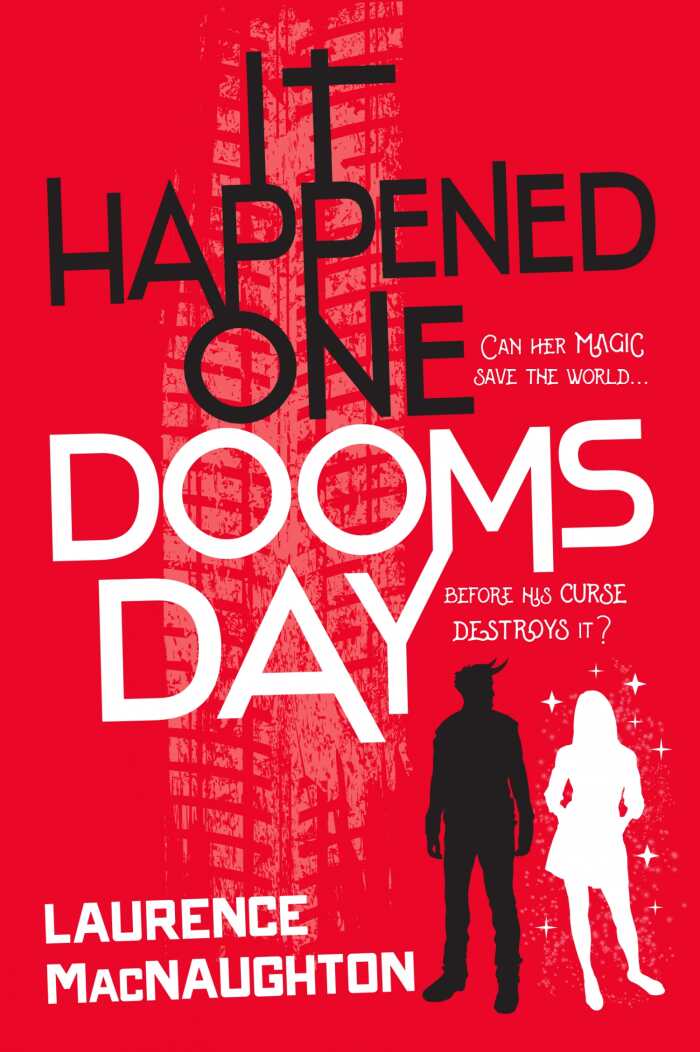
Laurence MacNaughton
Pyr
Softcover $18.00 (280pp)
978-1-63388-187-7
Buy: Amazon
This is one hell of a ride, and it begs for a sequel.
It Happened One Doomsday, by Laurence MacNaughton, is a fast-paced race against the apocalypse in which insecure, neophyte sorceress and shopkeeper Dru must rise to the occasion if humanity is to survive.
Dru’s journey begins when a imposing stranger, Greyson, ventures into the wrong part of town and walks through the door of her occult shop looking for answers. To Dru, he shows all of the hallmarks of demonic possession. Thus begins a scramble to uncover sorcery’s deepest secrets and unravel his possession before it unravels him—and maybe the world itself.
Faced with the end of the world, Dru gets by with the help of her friends, but the glimpses offered into these characters are tantalizingly superficial and often stereotypical. Dru herself is an “adorkable” pin-up girl who’s insecure and supportive. Her non-magical boyfriend, Nate, is a skeptical, wealthy professional. Her friends are the shop’s sole employee, Opal, a full-figured, sassy black woman, and her most frequent client, Rane, a statuesque blond sorceress whose friendship and admiration Dru accepts when she isn’t worrying about its occasional romantic overtones. Greyson, with his tortured past and demonic possession, rounds out the group. Although everyone helps confront the apocalypse in his or her own way, these relationships are built more on shared experiences than intimacy. This makes for an action-packed plot, if also for some unsatisfying character development and growth.
Episodic in nature, the story unfolds in bold, cinematic strokes. Action sequences, particularly the final car chase, thrum with tension as Dru and her team streak through urban decay, mountains, high desert, and occult landscapes in sexy, demon-possessed muscle cars. Well-executed imagery and pacing make this a joyous thrill ride with a sense of peril. Interspersed dialogue and descriptions are often laugh-out-loud funny, and the cartoonish villainy of the demonic muscle cars and Dru’s studious, pedantic application of magical principle provide levity.
A perfect summer read, It Happened One Doomsday doesn’t lull. This is one hell of a ride, and it begs for a sequel.
LETITIA MONTGOMERY-RODGERS (July 29, 2016)
Wicked Weeds
A Zombie Novel
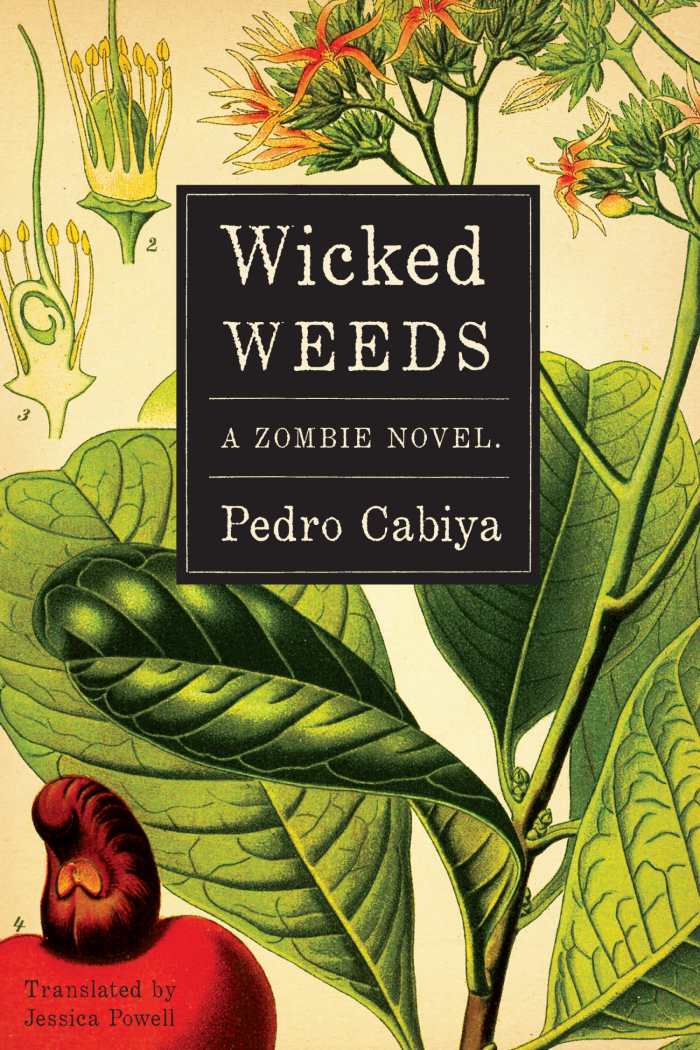
Pedro Cabiya
Jessica Ernst Powell, translator
Mandel Vilar Press
Softcover $16.95 (184pp)
978-1-942134-11-4
Buy: Local Bookstore (Bookshop), Amazon
Horror-film buffs will appreciate the irony and impressive knowledge the zombie possesses of pop-culture representations of the living dead through the years.
Threats of a zombie apocalypse seem to be around every corner, but what’s rare is an intelligent, thoughtful, funny, sentimental, socially conscious, and, yes, gross at times zombie tale infused with Caribbean culture, piques, prejudices, and passions. Pedro Cabiya delivers all of this and more in Wicked Weeds, one gentleman zombie’s quest to recapture his lost qualia, that indefinable, internal, sensory perception of self.
With all the edgy, philosophical musings characteristic of Latin American fiction, the progression of Wicked Weeds unfolds over generations and across the complicated social strata of Haitians and Dominicans. Three distinct voices are at play: the scientist zombie, the beautiful and cunning fellow scientist Isadore Bellamy, and her great-aunt Sandine, who hails from a black-magic-steeped village in Haiti.
Through field reports, journal entries, reminiscences, and even a few police interrogation reports, the zombie’s roots and expectations carefully emerge as he attempts to blend into a society unaccepting of his living-dead status. After all, “to be dead,” observes a wise zombie, “has grievous consequences.” Humorous, introspective, and often both at once, the zombie clumsily fields amorous pursuits while pursuing his search for qualia, surprisingly overlapping Isadore’s own forays into the botany of dangerous plants, or “wicked weeds.”
Horror-film buffs will appreciate the irony and impressive knowledge the zombie possesses of pop-culture representations of the living dead through the years, which were studied purely for self-preservation but prove insightful nonetheless. That knowledge integrates decades of science-fiction representations and icons.
Whether you consider yourself a lover of zombie fantasies or not, devour Wicked Weeds for its unique perspective, cultural insights, and charged humor. Go ahead and laugh out loud or clear your throat in surprise because, as every zombie knows, “when all is said and done,” a laugh and a cough are each just a “spasm of the thorax.”
PALLAS GATES MCCORQUODALE (August 26, 2016)
Hannah Hohman
